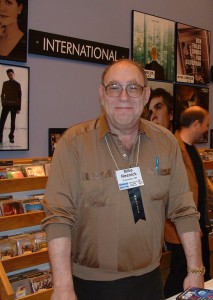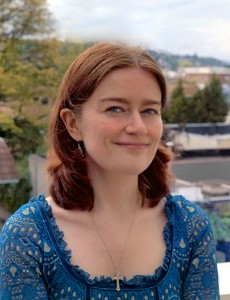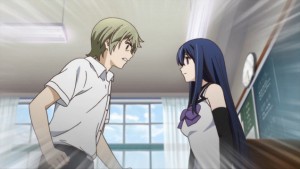interviewed by Carl Slaughter
 Gordy Dickson told me close to half a century ago that if you were good, and prolific, and an aggressive marketer, there would come a point 25 years into your career where you received a pleasant surprise (which is to say, a reprint or foreign sale) in your mail box every week, all for writing just those two words, ‘Mike’ and ‘Resnick’ on a contract.
Gordy Dickson told me close to half a century ago that if you were good, and prolific, and an aggressive marketer, there would come a point 25 years into your career where you received a pleasant surprise (which is to say, a reprint or foreign sale) in your mail box every week, all for writing just those two words, ‘Mike’ and ‘Resnick’ on a contract.
CARL SLAUGHTER: WHAT IS “NO HEAVY LIFTING” SALES?
MIKE RESNICK: It’s my term for sales that require no writing, which is to say: reprint sales, foreign sales, audio sales, movie options, graphic novel sales, etc.
HOW MANY NO HEAVY LIFTING CHECKS ARRIVE IN YOUR MAILBOX PER YEAR?
Better than 100 a year, if you include royalty checks on self-published reprints (which is to say, once a book is out of print and reverts to me, if I can’t sell it for what I think is a good price, I’ll convert it into an e-book and sell it on my web page, and through Amazon, Barnes, Kobo, and the like.) Otherwise, probably 50 to 75.
HOW PROLIFIC DO YOU HAVE T BE TO REAP THIS KIND OF HARVEST?
Over the past 30 years I’ve probably sold 3 books a year (excluding anthologies I’ve edited), and anywhere from 8 to 10 stories a year on average.
HOW MUCH ADDITIONAL INCOME ARE WE TALKING ABOUT? POCKET CHANGE? CONVENTION EXPENSES? MORTGAGE PAYMENTS? COLLEGE FUND? RETIREMENT ACCOUNT?
Depends on your expenses. In 2008, my no-heavy-listing income came to $33K; in 2009, $50K; in 2010, $43K; in 2011, $51K; in 2012, $73K; in 2013, $31K; and for the first 6 months of 2014, $18K. This, I should add, is the gross amount, before paying fees to my domestic agent (where due) and various foreign agents (where due).
WILL THIS STRATEGY WORK FOR EVERY WRITER OR ONLY THE BIG NAMES?
It’ll work for most writers, and of course it’ll vary wildly, not only with the writer’s name and prestige, but also with the writer’s themes and styles, with how easy he is to translate, with whether his themes appeal to other nationalities. But in general, if he’s good enough to sell here, he’s good enough to sell in most places.
HOW CAN A WRITER APPLY THE NO HEAVY LIFTING STRATEGY TO NOVELS?
Novels require agents, so the writer will want an agent who is known to have a top-notch foreign desk. (I should add that “foreign desk” is an industry term which translates as “working relationships with top-notch foreign agents”.) You learn about this by asking, not the agents, but the writers.
HOW CAN A WRITER APPLY THE NO HEAVY LIFTING STRATEGY TO SHORT STORIES?
There you don’t need an agent, any more than you need one to sell to the top domestic magazines. You start studying the market, you find which countries have viable magazines with viable rates, you check to see which of them buy from American writers (and, like novels, these are invariably reprints). Most of the foreign editors are on Facebook or Google+ and most of the writers are happy to share information with you: “This one wants names”; “That one won’t take novelettes or novellas”; “This one looks like it may be folding soon”; etc. In other words, you network and exchange information, preferably with those writers who know what they’re talking about, just the way you do for domestic markets.
HOW CAN A WRITER APPLY THE NO HEAVY LIFTING STRATEGY TO FOREIGN MARKETS?
I think I just answered that. 98% of your foreign sales are novels and short stores. True, I’ve sold a movie option to France, and they’re actually turning one of my stories into a movie in China as I write these words, but it both cases the sales were precipitated because they came across my translated stories in France and China, stories I had sold as described above.
HOW CAN A WRITER APPLY THE NO HEAVY LIFTING STRATEGY TO AUDIO?
There are a number of podcasts and podcastzines , Escape Pod, Starship Sofa, many others , that specialize in short stories. Some only want nominated stories or stories of a certain type, and they’ll contact you once they know you have one. With others, just listen to the shows, talk to people who have sold them, and find out what their submission guidelines are. The real money comes in audio sales of your books. The 800-pound gorilla in the room at the moment is Audible.com, but there’s also Blackstone Audio, Brilliance Audio, and a handful of others. Again, find out who does the buying, make contact, and offer to submit your work.
HOW CAN A WRITER APPLY THE NO HEAVY LIFTING STRATEGY TO SCREEN?
Most of the time it’s entirely up to Hollywood. One of their execs sees something he likes (I almost said “reads”, but no one out there reads) and contacts you. You don’t need a Hollywood agent, but you must have a Hollywood attorney, and you get one by asking writers you trust who have dealt with Hollywood to recommend their own. Once you’ve made a sale , which is invariably an option and not an outright sale , you start befriending as many people as you can meet in the industry, because this industry exists via personal cachet more than any other. Every Hollywood sale I’ve made , and that includes 11 options and 3 screenplays over the years , stems from the very first contact I made (and, as the saying goes, his friends had friends who had friends, etc.)
HOW DO ELECTRONIC EDITIONS AND PAPERBACK EDITIONS FACTOR INTO THE NO HEAVY LIFTING STRATEGY?
As I said, I create electronic editions , it costs next to nothing , of any reverted novel that I can’t sell for the price I want, and put them up for sale. These days I also find ways to bundle them with books by other writers; usually it comes to a 30-day sale at a reduced price , and being in a bundle with, say, Kevin Anderson and Rob Sawyer and Misty Lackey and Nancy Kress and Robert A. Heinlein helps all of us. Paperback (or hardcover) implies an outlay of money, and I have believed from the start that money is supposed to flow to the writer, not from him, so I never print/publish hardcover or paperback copies of my books.
WHAT ABOUT GRAPHIC NOVELS?
I wrote a Conan comic for Marvel back in 1971, and that is the full extent of my knowledge about the industry. I never asked for another assignment, and was never offered one. But a fellow I’ve collaborated with has all kinds of connections, and asked if I’d be willing to collaborate on graphic novels of a novella and a four-book series of mine, I said yes, and we’re in business.
WHAT ABOUT NONFICTION? WHAT ABOUT ANTHOLOGIES? WHAT ABOUT OUT OF GENRE MATERIAL?
My non-fiction tends to be articles about science fiction. Whether I write them for pro markets or for fanzines, every couple of years I collect a bunch of them into a book , I’ve got ten such books so far , and once in a while I can sell one to one of my foreign markets, but in truth I make very little money off that, hardly enough to warrant more than a couple of e-mails per country. I’ve just recently started writing mystery novels , I only have three out , and it’s too early to tell how they’ll do overseas compared to the science fiction. Anthologies tend to be owned by the publisher, and are not mine to re-sell (with very few exceptions).
HOW MANY REPRINTS BEFORE THE REPRINT INCOME EXCEEDS THE ADVANCE FOR THE ORIGINAL?
That presupposes that all reprint sales are for the same amount, and of course they’re not. (My top for a foreign novel sale is $19K; my bottom is $500 from a country I probably couldn’t find on the map.) It also presupposes that all advances are identical, and ditto. I’d say in general I make more from the rest of the world (combined, of course) than from America five times out of six. I found out 30 years ago that, while no other country ever pays you as big an advance as you get in the States, 5 out of 6 books will earn more in the rest of the world than here.
EVERY GOT MORE FOR A SHORT STORY RESALE THAN FOR THE ORIGINAL SALE?
No, though Japan has come very close a few times. And we won’t count Hollywood, which plays with Monopoly money.
YOU’VE SOLD 27 STORIES 10 OR MORE TIMES, 4 STORIES 20 OR MORE TIMES. HOW DO YOU FIND SO MANY MARKETS FOR THE SAME STORY?
You just keep looking, and remembering that a story is never done selling, which means you’re never done finding new markets. You also try to sell them with a five-or-seven-year term of lease, so that if the book is still doing well they have to put it again from you when the time period is up. Anyone who’s interested can hunt up my bibliography on my web page. It changes every few days, but it’ll give you a pretty thorough idea of what I’ve been talking about. And, for the record:
Novels:
Santiago , 22
Ivory , 18
Stalking the Unicorn , 13
Soothsayer , 13
Kirinyaga , 12
The Widowmaker , 12
The Soul Eater , 11
Walpurgis III , 11
Eros Ascending , 11
The Dark Lady , 11
Oracle , 11
Prophet , 11
The Widowmaker Reborn , 11
The Widowmaker Unleashed , 10
Starship: Mutiny , 10
Short fiction:
Kirinyaga , 30
For I Have Touched the Sky , 28
Seven Views of Olduvai Gorge , 22
Travels With My Cats , 19
The Last Dog , 15
The 43 Antarean Dynasties , 15
Winter Solstice , 15
Hunting the Snark , 14
Beachcomber , 13
Stalking the Unicorn with Gun and Camera — 12
The Elephants on Neptune , 12
Old MacDonald Had a Farm , 12
Robots Don’t Cry , 12
Down Memory Lane , 12
Article of Faith , 12
Me and My Shadow , 11
The Manamouki , 11
Hothouse Flowers , 11
Distant Replay , 11
His Award-Winning Science Fiction Story , 10
Frankie the Spook , 10
Bully! , 10
Malish , 10
The Pale Thin God , 10
Mwalimu in the Squared Circle , 10
A Princess of Earth , 10
Soulmates (collaboration with Lezli Robyn) , 10
All the Things You Are , 10
Alastair Baffle’s Emporium of Wonders , 10
Now, some of those, like “The Last Dog”, have been around since 1977, and have been selling and re-selling for 39 years†�but some, like “Soulmates”, appeared first in 2009 and had its 10th sale by 2011. It’s a crapshoot, but if you do your homework and stick with it, eventually you’ll decide that it was worth it (and on some days, like when you get a handsome offer for a twenty-year-old book, it actually feels like stealing).
DO YOU HAVE TO DO ANY CUSTOMIZING OR REVISING WHEN YOU SELL THE SAME STORY TO A DIFFERENT MARKET?
No. If it’s an English-language market, the story’s already copyrighted and can’t be changed; and if it’s a foreign-language market, they’ll hire a translator.
ANYTHING ELSE WE NEED TO KNOW ABOUT NO HEAVY LIFTING SALES?
Like anything else, it’s a business. You run it in an orderly, businesslike manner, you never hold a grudge if someone doesn’t like your submission or doesn’t offer what you think it’s worth, and you use your brain. Here’s an example of what I mean by using your brain.
Back at the 1991 and 1992 Worldcons (in Chicago and Orlando), the Iron Curtain had just turned to tissue paper, and a bunch of magazine editors from former Soviet countries came to the cons, looking for stories. So did the Germans, who were starting some new publications. None of them had any money to speak of, but I met with each of them, and sold them a bunch of stories, usually for about $25 apiece, even gave away a pair of Hugo winners to destitute magazines†�.and late one night, toward the end of the con, two of my friends took me aside and read me the riot act. You’re a pro, they insisted; and pros don’t sell quality reprints to anyone for under $100. That’s usually true, I replied; but these guys have no money, their countries just became free, and they have no book publishing industry†�but they will have book publishers before too long, and I think those publishers are going to look with favor upon writers who have already established an audience through their local magazines.
OK, move the clock ahead almost a quarter of a century. I’ve sold 41 books to Poland since that day, plus 29 to Germany, 24 to Russia, 10 to the CzechRepublic, and 8 to Bulgaria. And my friends who were too proud to do business with the cash-strapped magazine editors? I believe they’re all still waiting for their first book sale from any of those countries. Like I say, you gotta use your brain.
And there are games you can play if you know what you’re doing. One I mentioned in one of my dialogs with Barry Malzberg is playing the exchange rate. The example was “Ivory”. I sold British rights in about 1989 or 1990, I’d have to check which year, for 10,000 pounds. On the day payment was received, in England, the pound was $1.53. The Wall Street Journal was convinced that the pound was undervalued on the world marker, so I had my British agent deposit my check at Barclays, where I had an account…and when I sent the money to my US account 12 weeks later, the pound was $1.92…so that $15,300 became $19,200 (minus agents’ fees) just by sitting in a British bank for 3 months, a tidy profit of $3,900, which is more than I sold the damned thing for in Hungary, Romania, or Spain.
 Carl Slaughter is a man of the world. For the last decade, he has traveled the globe as an ESL teacher in 17 countries on 3 continents, collecting souvenir paintings from China, Korea, Thailand, Vietnam, and Egypt, as well as dresses from Egypt, and masks from Kenya, along the way. He spends a ridiculous amount of time and an alarming amount of money in bookstores. He has a large ESL book review website, an exhaustive FAQ about teaching English in China, and a collection of 75 English language newspapers from 15 countries.
Carl Slaughter is a man of the world. For the last decade, he has traveled the globe as an ESL teacher in 17 countries on 3 continents, collecting souvenir paintings from China, Korea, Thailand, Vietnam, and Egypt, as well as dresses from Egypt, and masks from Kenya, along the way. He spends a ridiculous amount of time and an alarming amount of money in bookstores. He has a large ESL book review website, an exhaustive FAQ about teaching English in China, and a collection of 75 English language newspapers from 15 countries.



 Speaker for the Dead is the sequel to Ender’s Game. Ender’s Game was first a short story and then was expanded to a novel, and just last year was made into a movie.
Speaker for the Dead is the sequel to Ender’s Game. Ender’s Game was first a short story and then was expanded to a novel, and just last year was made into a movie. 




 Brynhildr in the Darkness tried very hard to make me stop watching it, probably more so than any other series I can think of in recent years. On the one hand it has a smart and likeable main character who manages to pull off being a high school student protagonist without coming off as unrealistic wish fulfillment. Ryota is definitely not that powerful and works within the limitations of being an ordinary human caught up protecting artificial witches from the secret organization that created them.
Brynhildr in the Darkness tried very hard to make me stop watching it, probably more so than any other series I can think of in recent years. On the one hand it has a smart and likeable main character who manages to pull off being a high school student protagonist without coming off as unrealistic wish fulfillment. Ryota is definitely not that powerful and works within the limitations of being an ordinary human caught up protecting artificial witches from the secret organization that created them.